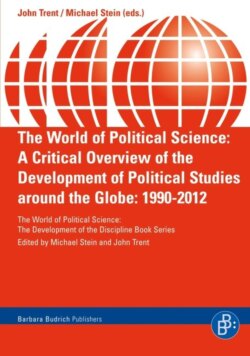Читать книгу The World of Political Science - Группа авторов - Страница 12
На сайте Литреса книга снята с продажи.
3.2. Sociology of Political Scientists
ОглавлениеWho constitutes the political science community in Japan? It has been comprised mostly of academics. The role and space of practitioners have been on a slow increase as retired professional practitioners take up positions in academia in such areas as public policy, international relations, accounting, journalism and business. They number some 6 per cent according to my informed guess.
What are the types of career path, of professional academics? In political science, professors with a Ph.D. are in the minority, say some 10 per cent. The younger the age, the more professors are xxxxxx to have a Ph.D. but they are still remarkably small in number. The majority take a teaching position whilst working on a Ph.D. dissertation, and oftentimes do not complete their Ph.D. degree even at a later date. Professors with an American Ph.D. are in a very smaller minority – my guess is some 3-4 per cent. Since the number of political scientists is something like 5,000, only some 150 would have U.S. doctorates. In comparison, Korean political scientists with an American Ph.D. number 1,500 out of some 2,500. The large domestic market for book publication and the still strong Japanese model of self-reliance: borrowing first from abroad, then endogenizing things foreign, then starting domestic production and then eventually liberalizing the professional academic market (a stage that has not fully arrived in Japan) seem to explain this figure very well (Inoguchi and Harada 2002).
What are the outlets for political scientists’ publications? After all, academics are most highly reputed by what they publish. Most of them publish in the form of a book or a journal article in Japanese. Those regularly publishing in English number only 20-50. They are mostly young and with an American Ph.D. The picture is not so dismal, however. The spring 2005 issue of the American Political Science Review carried two articles by Japanese authors. The June issue of the Journal of Conflict Resolution carried an article including two Japanese names, which is a most widely read in terms of the frequency of hits registered in the publisher’s website (Hill and Matsubayashi 2005: 215-224; Imai 2005: 283-300; Goldsmith et al. 2005: 408-429). Journal publication is vigorous. Some dozen academic associations in these broad areas of political science exist. The largest, the Japan Association of International Relations, publishes two journals, one in Japanese and the other in English (their contents are different). The Kokusai seiji publishes five issues a year and International Relations of the Asia-Pacific (Oxford University Press) publishes three issues a year. Thomson-Reuters has granted the journal an imput factor since 2010. The second largest, the Japan Political Science Association, publishes one journal in Japanese, Nenpo Seijigaku (The Annals of Political Science). The Japanese Electoral Studies Association publishes two journals in Japanese. The Japanese Public Policy Association publishes a journal in Japanese. Aside from association-sponsored journals, the Japanese Journal of Political Science is edited by the author of this chapter and is published four times a year by Cambridge University Press. Thomas Reuter has granted an imprime feature since 2010. The Leviathan is edited in Japanese by the Leviathan group.
